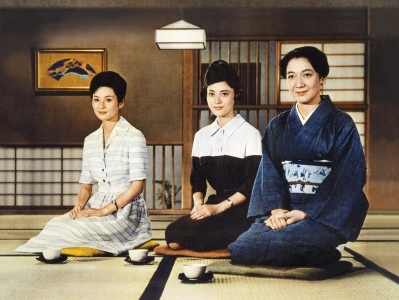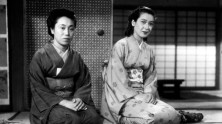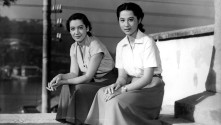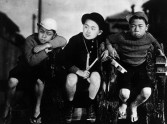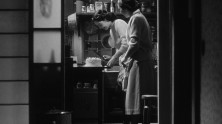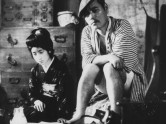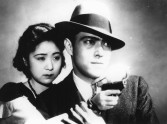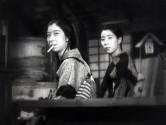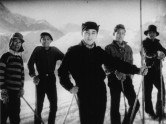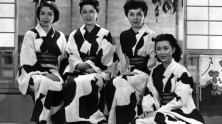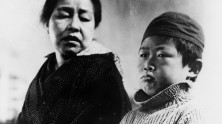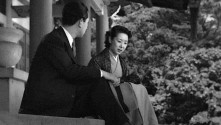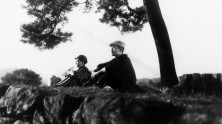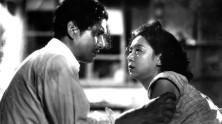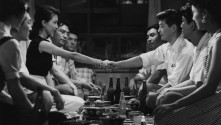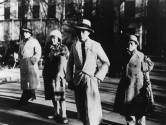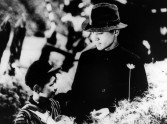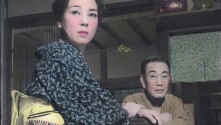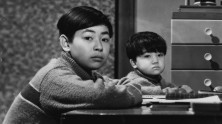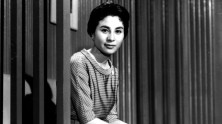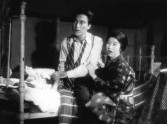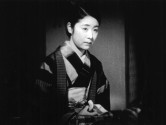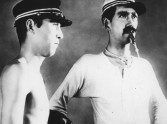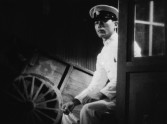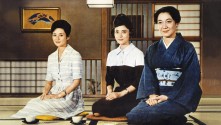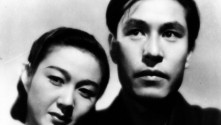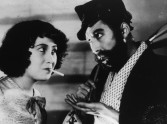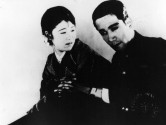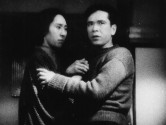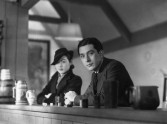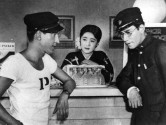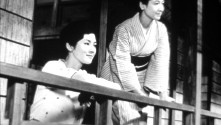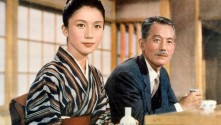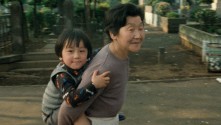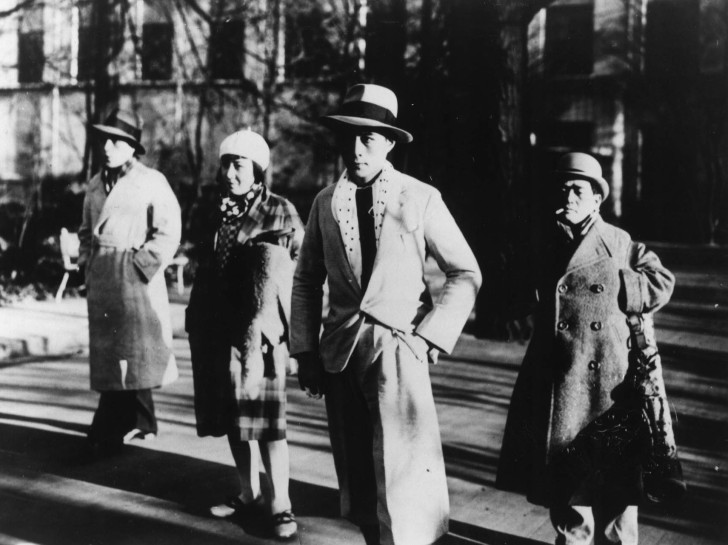
Walk Cheerfully
(Hogaraka ni ayume)
Screening on Film
With Takada Minoru, Kawasaki Hiroko, Date Satoko.
Japan, 1930, 35mm, black & white, silent, 96 min.
Japanese intertitles with English subtitles.
Print source: Janus Films
Shochiku studio head Shiro Kido’s affinity for warm and hopeful messages of salvation forced many filmmakers to be strategic in their depictions of despair. Ozu’s noir and gangster films reveal his own creative way of bending the rules, usually with an act of penance added to the final act. Based on an original story by Shimizu Hiroshi, Walk Cheerfully follows Takada Minoru’s gangster Kenji (a.k.a. Ken the Knife), whose feelings for office typist Yasue (Kawasaki Hiroko) inspire him to go straight. As Kenji tries to find another line of work and win over Yasue, his girlfriend Chieko (Date Satoko) retaliates with a scheme involving Yasue’s boss (Sakamoto Takeshi). The prevalence of Hollywood tropes and imagery in Walk Cheerfully is far more complex than it initially appears. Because the film actually shows very little criminal activity, the gangsters seem more like Hollywood aficionados and cinephiles (like Ozu himself) than threats to the social order. This makes Kenji’s repentant pursuit of a clean slate all the more shocking and excessive, generating a paradoxical criticism of the very stereotype—the Americanized gangster who spurns traditional values—the film depicts.
